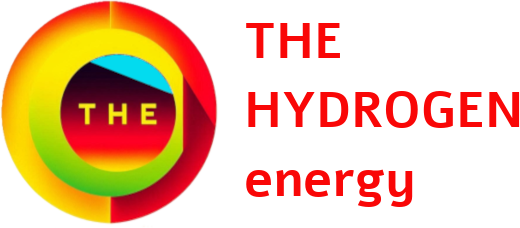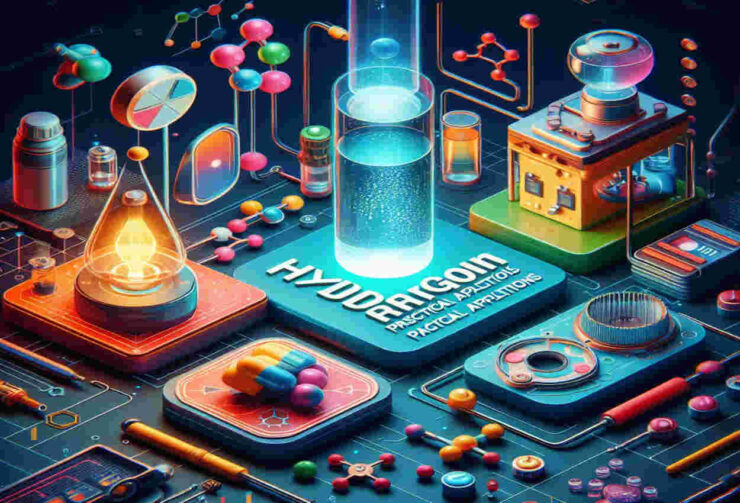Hydrogen uses in traditional industries as well as new clean energy transitions. The uses of hydrogen have evolved over centuries, from early scientific discoveries to powering today’s advanced technologies.
Hydrogen uses span a wide array of industries and applications, showcasing its versatility and importance in the modern economy. As a clean energy carrier and a vital component in various industrial processes, hydrogen uses are becoming increasingly significant, especially in the context of sustainability and carbon reduction.
Hydrogen, the most abundant element in the universe, offers a surprising range of applications beyond just a fuel. Here’s a detailed breakdown of its traditional, important, practical hydrogen uses as well as potential, evolving hydrogen uses, driven by clean energy transition towards replacement of fossil fuels.
Hydrogen uses in Industrial Processes
- Refining Petroleum: Here uses of Hydrogen is not only utilized in hydro cracking and catalytic reforming, but it also plays a significant role in other refining operations like hydro treating, desulfurization, and hydro desulfurization. Hydrogen plays a vital role in removing sulfur from gasoline and other fuels during the refining process, improving air quality. Hydro-cracking: This process uses hydrogen to break down heavier hydrocarbons into lighter, more valuable fuels like gasoline and diesel.
- Steel Manufacturing : High-purity hydrogen is used in a process called direct reduced iron (DRI) to remove oxygen from iron ore, creating a cleaner and more efficient steel production method.
- Treating Metals: In metallurgy, hydrogen is used to reduce metal oxides to pure metals and remove impurities, making them stronger and more suitable for various applications.
- Producing Fertilizer: The Haber-Bosch process, a cornerstone of modern agriculture, utilizes hydrogen to create ammonia, a key component in fertilizers. This process is responsible for a significant portion of global hydrogen consumption. Approximately 84% of the hydrogen used in the chemical sector is dedicated to ammonia production, highlighting its critical role in agriculture
- Soda Ash Production: The Solvay process, a major industrial process, uses hydrogen to produce sodium carbonate (soda ash), a crucial ingredient in glass, detergents, and other products.
Hydrogen uses in Food Processing:
- Food Processing: Hydrogenation, a process that adds hydrogen to unsaturated fats and vegetable oils, helps create margarine and cooking fats with a longer shelf life.
Hydrogen uses in Chemical Production
- Hydrogen Peroxide: This disinfectant and bleaching agent is produced using hydrogen, with applications in water treatment, food processing, and various cleaning products.
- Methanol: A clean-burning fuel and chemical feed stock, methanol can be derived from hydrogen and has uses in transportation fuels, chemicals, and plastics production.
- Hydro chloric Acid: This essential industrial acid is produced through the reaction of hydrogen and chlorine, used in various industrial processes like metal pickling and leather tanning.
- Olefin Production: Olefins, a category of compounds, are employed in the creation of numerous products including fibers, rubber, and plastics. The cracking of hydrocarbons to produce olefins results in the generation of significant quantities of hydrogen. In the process of olefins production, hydrogen contributes greatly to energy efficiency and environmental benefits.
Hydrogen Uses in E-fuels or Synthetic Fuels:
Hydrogen produced from renewable electricity or Green Hydrogen is combined with captured carbon dioxide (Carbon capture) to create synthetic fuels like gasoline or methane, potentially offering a cleaner alternative to fossil fuels.
Hydrogen Uses – Other Applications
- Welding: Oxyhydrogen torches combine hydrogen and oxygen to produce an intensely hot flame for metal welding and cutting.
- Rocket Fuel: Liquid hydrogen is a powerful and clean-burning fuel used in launch vehicles and upper-stage rockets due to its high specific impulse (thrust per unit propellant).
Hydrogen Uses in Everyday Life
Hydrogen uses in residential and commercial heating are gaining traction as countries aim to reduce reliance on natural gas and other fossil fuels through Hydrogen Blending. Blending hydrogen with natural gas is an effective way to reduce carbon emissions from existing heating systems without requiring significant infrastructure changes. Uses of hydrogen for Energy for Remote Areas through portable hydrogen fuel cells are ideal for generating electricity in remote locations or with extreme climate conditions.
Emerging and Potential Hydrogen Uses
- Energy Storage: Hydrogen has the potential to store excess renewable energy (like solar or wind) and convert it back to electricity when needed, helping to balance the grid.
- Combined Heat and Power (CHP): Hydrogen fuel cells can be used in CHP systems to generate electricity and provide heat for buildings, improving overall energy efficiency.
- Transportation:
- Hydrogen-powered Vehicles (Emerging): Fuel cell electric vehicles (FCEVs) powered by hydrogen offer a clean alternative to gasoline-powered cars with zero tailpipe emissions.
- Hydrogen Trains and Buses (Emerging): Similar to FCEVs, hydrogen fuel cells can power trains and buses for clean public transportation.
- Hydrogen-powered Aircraft (Future): While still under development, hydrogen-fueled airplanes offer the potential for long-range, sustainable air travel.
Biological Hydrogen Uses
Hydrogen uses in Fermentation to convert organic waste into clean hydrogen fuel. Artificial photosynthesis hydrogen uses mimic natural processes through engineered catalytic systems.
Hydrogen Uses in Advanced Technologies
Hydrogen uses in advanced technologies highlight its importance in high-precision and high-performance applications.
- Hydrogen Uses in Super cooling:
- Hydrogen’s extremely low boiling point makes it a critical coolant for applications requiring temperatures as low as -253°C.
- Hydrogen uses in super-cooling are vital for cooling components in particle accelerators, superconducting systems, and quantum computing.
- Magnets:
- Liquid hydrogen is employed to cool superconducting magnets used in scientific research and medical imaging technologies like MRI (Magnetic Resonance Imaging).
- Hydrogen uses in magnets ensure stable, high magnetic fields crucial for experiments and diagnostics.
- Spectrometry:
- Uses of hydrogen as a carrier gas in gas chromatography-mass spectrometry (GC-MS), a technique used for identifying and quantifying chemical compounds.
- Hydrogen uses in spectrometry enable high-resolution, efficient, and accurate analysis in industries such as pharmaceuticals and environmental monitoring.
Precision Metal Processing
The hydrogen uses in powder metallurgy revolutionize metal processing through controlled reducing atmospheres. Float glass manufacturing hydrogen uses create flawless surfaces through precise chemical reduction processes, where hydrogen-nitrogen mixtures eliminate microscopic defects.
Semiconductor Manufacturing
Electronic manufacturing hydrogen uses are crucial in epitaxial growth, where hydrogen acts as both carrier gas and reducing agent. LED display hydrogen uses involve hydrogenation processes that modify material properties and create plasma for precise etching operations.
In the modern era, the uses of hydrogen have expanded significantly, transforming industries and advancing sustainability! Hence the uses of hydrogen have grown from niche applications in history to becoming a cornerstone of modern industries.
This article is Copyright protected







Add comment